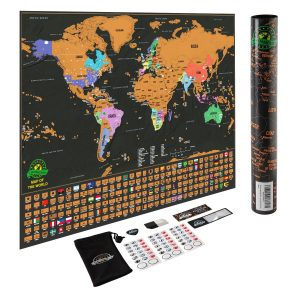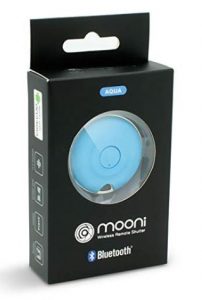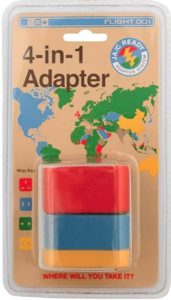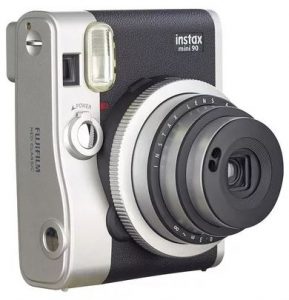by Malori

If travel provides a respite from daily responsibilities, then nature re-balances the soul. Spending time in the outdoors is uplifting and provides an energy seldom found in day-to-day life. Having just returned from a trekking adventure in Argentina, the goal I set was to create a special opportunity where we could explore the beauty of the land as well as some self discovery along the way.
After gathering the group in Buenos Aries and learning a bit about several of the neighborhoods that make up this energetic city, the next morning we got on a plane and headed south – three and a half hours south – to the bottom of the globe. We landed in El Calafate where the sun was bright in the sky for long hours each day and didn’t set until 11:00 pm. After all, it’s summer here in the Southern Hemisphere. Snow covered mountains, glaciers and lakes filled with flamingos were but a few of the many surprises awaiting us.

We spent our time in this amazing region visiting the Estancia Christina, reachable only by a 3 hour boat ride, passing icebergs and glaciers and highlighted by a pristine turquoise blue (we call it “amazing” blue) moraine lake. It truly took our breath away. The next day we were treated to the Pertido Moraino Glacier where we stood under absolute perfectly blue skies (a rarity here) and watched as this spectacular glacier calved, losing large chunks, the size of buildings. I call this “natures fireworks” and as we stood silently waiting, we’d hear a thunderous roar and then gaze giddily as we heard the cracking as we experienced parts of the glacier crashing into the water. We all clapped as if seeing a live theater performance. Although this glacier is neither shrinking nor expanding, this is the normal growth cycle of a glacier. We were happy to know that it was not a shrinking glacier as so many of the earths glaciers are. We hiked the trails from below and above with a picnic lunch along the way, and happily enjoyed the views from each angle.
With a three hour drive across the beautiful and stark Patagonian landscape, seeing little else but guanacos along the way (a cousin of the llama), we arrived in the trekkers town of El Chalten. It was here we experienced the heart and soul of our adventure and our most challenging trekking of our entire journey. Over the next three days, we embarked three different hikes within Los Glaciares National Park. On our arrival day, we set out into a beautiful landscape enveloped by meandering rivers, snow capped mountains and several different rock types including red rocks, granite, sandstone and basalt, a combination generally not found together. The windswept valleys were covered with clouds that have formations unlike those we had ever seen anywhere. Most were long flowing cloud formations in the shape of ribbons across the big sky. Others were wispy yet round taking on the shape of a spaceship. Under these skies, our journey began. We walked six miles through and beside the mountain valley to a waterfall. It was really lovely.

The next day was our most demanding. We set out early in the morning for our 11-13 mile trek. Backpacks filled with water, layers of clothing and snacks, our walking sticks in hand and hiking boots laced, we began our walk on the Fitz Roy Footbath to the Glacier of the Three, one of the most breathtaking hikes in the world. Those who wanted the longer hike were challenged not only with an additional two miles of trekking, but going nearly straight up the side of the mountain, climbing 1,200 feet in only half of mile. That means on the way down, heading nearly straight down. The view from the top was amazing and described by one of our passengers upon reaching the summit, “it was as if a curtain opened and the most incredible scenery on earth stood before us.”

The following day we were supposed to climb another 10 – 12 miles, but the unpredictable Patagonian winds and rain were starting to form so on this day, some of the group walked six miles while others did about eight.
It wouldn’t have been an adventure in Argentina without a visit to the wine growing region of Mendoza where Malbec wines are produced. Winding our way through the vineyards at the base of the Andes Mountain which form the border between Chile and Argentina, we visited three different wineries, tasting 12 different wines. By the end of the day, we couldn’t tell which wine was which, but then again, it didn’t matter much. Our wine pairing lunch was an amazing combination of gourmet food, freshly baked breads and desserts that were as tasty as they were spectacular to look at. This was paired with a late-harvest dessert wine.

Finally, our last stop brought us back to nature where we visited one of my favorite spots on earth, Iguaçu Falls. Imagine you’re at the center of an IMAX movie, and you are surrounded by water on all sides – and above you, and below you, and you hear the sound of the rushing water all around you – that’s the feeling you get in Iguaçu Falls. Visiting both the Brazilian and the Argentinean side of the falls, you get the full scope of just how massive these 275 waterfalls are, and how in touch with nature you are at that moment in time. The feeling stays with you for a lifetime and the memories never fade. Iguaçu Falls touches you in a way few places can.
I recommend treating yourself to a getaway in nature. Reset your mind. Invigorate your body. Balance your soul. And then be thankful for all the treasures we have on this earth.













































